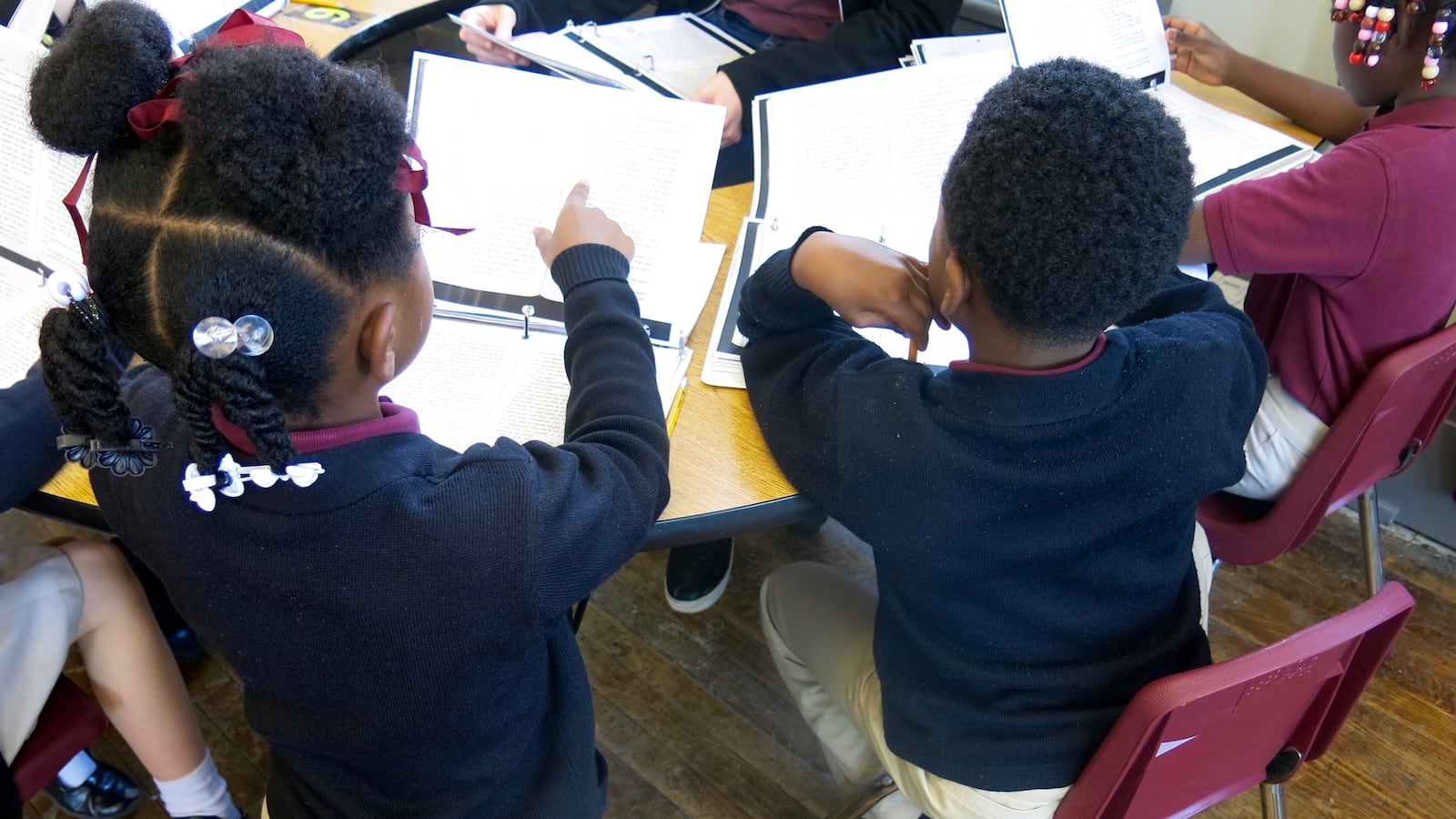Past research on Louisiana’s school voucher program came to a bleak conclusion: students who used the program to transfer to a private school saw their test scores plummet.
A new study complicates that narrative, finding some good — or at least, less bad — news about the closely watched program.
The research shows that, for students who received a voucher at the middle or end of elementary school, there were no statistically significant effects on their math or reading test scores by the third year in the program. That’s a boon for voucher advocates who have argued against judging a program by its initial impacts.
This “is an initial study of a very long-term question: namely, can government create a level playing field for all types of schools so that the best of all types of schools are available to the most disadvantaged students?” John White, Louisiana’s schools superintendent, told Chalkbeat. “I think this study shows that we are on our way to making that happen.”
Still, other aspects of the study suggest that the program continues to have negative effects, often large ones, on some students, specifically those in early grades.
The findings come as U.S. Education Secretary Betsy DeVos has promised a major federal push to expand private school choice. The Louisiana Scholarship Program, a statewide initiative that uses public funds to pay private school tuition for certain low-income students, is the seventh-largest voucher program in the country, serving over 7,000 students.
The research is a follow-up to an earlier study conducted by Jonathan Mills and Patrick Wolf of the University of Arkansas and has not been formally peer-reviewed. The study was funded by the Smith Richardson Foundation.
Mills and Wolf compare students who won the chance to participate in Louisiana’s program against those who applied for a voucher but lost the lottery. That means the researchers can be confident that differences between the two groups are caused by receiving the voucher.
For a number of technical reasons, the study focuses on just 514 older elementary school students who won a spot in a private school and remained there for three years, though they amount to only a small subset of the students using a voucher in the state.
The researchers find that by year three, the impacts of the program were slightly positive in English, moderately negative in math and science, and highly negative in social studies — but none of these results were statistically significant. They do find statistically significant positive effects in English for students who started out low performing in the subject.
White said the improvements in math and English compared to earlier years were reason for optimism.
The study also examines a larger sample that also included younger students. Here the results are decisively negative: Receiving a voucher led to large, statistically significant test score drops in both math and social studies.
But the authors caution that they are less confident in these results than in the findings exclusively for older students because they don’t have baseline test scores for such young students.
Why did the program seem to help students more when they remained for three years? White credits the threat of Louisiana’s test-based accountability rules, which are more stringent than most other states’ rules for private school choice programs. Critics have argued that these rules deter top-notch private schools from participating.
“The important finding is that, given accountability, schools improve — that includes private schools, as well as public schools,” White said.
The researchers are more skeptical of this explanation. They suggest that the improvement may have been the result of students for whom the program was not working returning to public schools, and adjustments made by private schools over time, including aligning curriculum to the state exam.
“It is possible that the private schools ignored those [potential] sanctions in year 1 and started taking them seriously in years 2 and 3, leading to the pattern of effects we observe, but it seems unlikely that they would place themselves in such a disadvantaged position from the start,” Mills and Wolf wrote.
Another study released Monday, of Indiana’s voucher program, showed that students in the program saw math achievement drop in comparison to public school students, but those who remained in private school for four years caught up in math and made gains in English.


